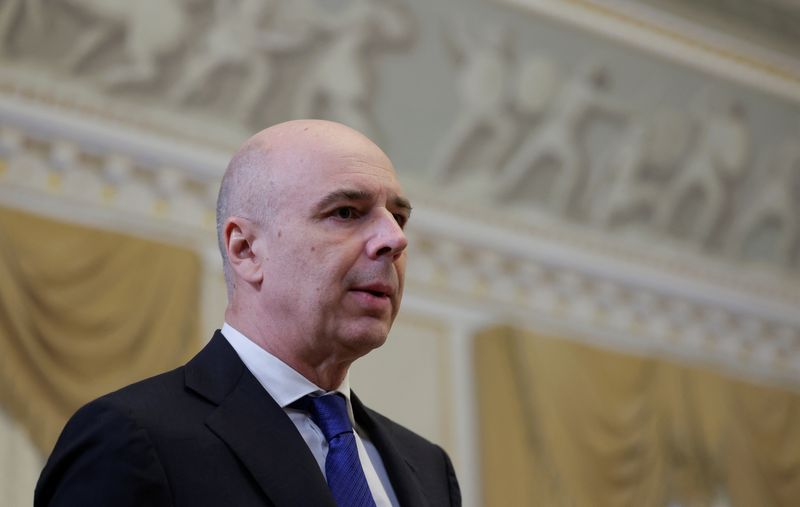(This Oct. 10 story has been corrected to remove Saudi Arabia as a member of BRICS, in paragraph 2. Saudi Arabia has been invited to join, but is not currently a member)
MOSCOW (Reuters) - Russia, which chairs the BRICS group this year, has called on its partners to create an alternative to the International Monetary Fund (IMF) to counter political pressure from Western nations ahead of the BRICS summit later this month.
BRICS, originally comprising Brazil, Russia, India, and China, has expanded to include South Africa, Egypt, Ethiopia, Iran, and the United Arab Emirates. Top BRICS finance and central bank officials are meeting in Moscow this week.
Russian Finance Minister Anton Siluanov, who is hosting the meeting, said the global financial system is controlled by Western countries and that the group, which represents 37% of the global economy, needs to create an alternative.
"The IMF and the World Bank are not performing their roles. They are not working in the interests of BRICS countries," Siluanov said at an event on the first day of the meeting.
"It is necessary to form new conditions or even new institutions, similar to the Bretton Woods institutions, but within the framework of our community, within the framework of BRICS," Siluanov added.
Russia had its forex reserves in dollars and euros frozen and its financial system heavily hit by sanctions by the West after it invaded Ukraine in February 2022. The country is cut off from international capital markets.
Russia has recently also experienced delays in international transactions with its trading partners, including BRICS member countries, as banks in these countries fear punitive actions from Western regulators.

Russia's central bank Governor, Elvira Nabiullina, has previously talked about a BRICS Bridge payments system, which would link member countries' financial systems, but progress has been slow.
The only financial institution the BRICS countries have established so far is the New Development Bank, created in 2015 to finance infrastructure and sustainable development projects in BRICS members and other emerging economies.